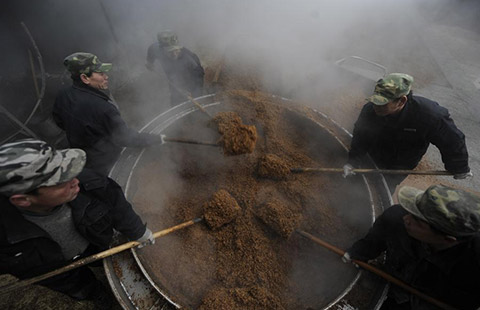'Neutral' monetary stance urged for China
China should keep its monetary stance "neutral" amid the loosing in liquidity globally, and may strengthen capital controls if necessary, according to Justin Yifu Lin, the former vice-president and chief economist of the World Bank.
"It's important for China to adopt a relatively proactive fiscal policy while keeping a neutral monetary stance, which would be helpful to maintain rapid economic growth and keep prices relatively low," Lin told a news conference in Beijing on Thursday.
He said that if China sees a flood of short-term speculative capital inflows, it can bring in necessary capital-control measures to prevent dramatic appreciation of the yuan, and avoid bubbles in the real estate and equity markets.
Lin, a member of the 12th National Committee of the Chinese People's Political Consultative Conference, said increasing global liquidity would continue to drive up China's currency exchange rate this year.
"And policymakers should make appropriate adjustments in accordance with China's domestic productivity and the balance of international payments."
Li Yining, a leading economist at Peking University and a CPPCC member, said: "We don't agree with the excessive monetary easing policies adopted by some countries."
Lin said despite the unfavorable international environment, the foundation of China's economic growth is fairly good, with sound fiscal conditions that allow government-led investment to continue to play a key role in shoring up growth.
He said China could maintain 8 percent annual growth for another 20 years if the economy could capitalize on its late-mover advantages, citing the examples of Japan, Singapore and South Korea, which had maintained growth between 7.6 to 9.2 percent in two decades when their income per capita was also 20 percent of the US.
But the country must be wary of the "middle-income trap", which suggests slowed and even stagnated growth after reaching middle-income levels, evidenced by the very few economies which have managed to escape such trouble, he said.
China became a middle-income country in 2012 after its per capita GDP exceeded $5,000, according to the National Bureau of Statistics.
Lin said among non-European and non-oil-exporting economies, only South Korea and Taiwan had escaped the trap and joined the high-income bracket successfully.
Rising income disparity and social disorder are the major causes of the middle-income trap, Li Yining added.
He said income distribution reform, technological innovation and relevant reforms can help China avoid the potential trap.
wangxiaotian@chinadaily.com.cn























